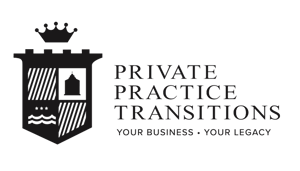There are many possibilities for young entrepreneurs who want to start their own private practice. Certified Public Accountants (CPAs) can be their own bosses, set their hours, and build something special from the ground up.
However, aspiring business professionals should learn the risks of starting their own private practice. From legal complications to marketing tactics, Private Practice Transitions will explain several obstacles and offer beneficial advice for your next business endeavor.
1. Financial Risks and Considerations
Initial costs—including expenses for office space, equipment, marketing, and hiring staff—add up quickly. Then, ongoing costs—such as rent, utilities, and wages—compile faster than you might expect. If your practice is slow to take off, you may find yourself in a financial bind.
Another financial consideration is the unpredictability of income. Unlike a salaried position, your income as a private practitioner can fluctuate. This instability can make budgeting and financial planning more challenging. Furthermore, changes regarding healthcare regulations or insurance policies could affect your revenue and worsen financial burdens.
Private practice owners can reduce these risks by creating and maintaining a solid financial plan. Consulting with a financial advisor to develop a budget and financial strategy will account for the startup phase and ongoing operations. This is an influential factor in boosting the success and longevity of your practice.
2. Administrative Burden
Running a private practice means focusing your attention on several components of the business at once. Alongside providing excellent client care, you need to manage administrative tasks, such as scheduling, billing, and recordkeeping. These tasks demand time, attention to detail, and organizational skills. Without diligent management, administrative responsibilities become overwhelming. As a result, you could detract from the practice’s primary focus: client care.
Technology can alleviate some of this burden. Investing in practice management software streamlines administrative tasks, so it’s easier to manage your schedule, handle billing, and keep accurate records. Remember that it will take time to understand how to use the software; give yourself a grace period, so you can maximize the software’s benefits.

3. Isolation and Loneliness
If you’re accustomed to a bustling office environment, it may feel strange working alone or alongside a small staff. It’s normal to miss the social interactions and collaborative opportunities from larger organizations.
These isolating emotions are a leading cause of burnout. If you want this business endeavor to work, you have to push yourself and combat loneliness.
Consider joining professional networks or online communities where you can connect with other private practitioners. Networking events, workshops, and peer support groups will provide valuable social interactions and professional support. Working with a mentor or business coach is another option to help you feel less isolated while navigating the challenges of your practice.
4. Building a Referral Network
One of the most common risks of starting your own private practice is failing to establish a referral network. It’s difficult to make connections or compile clientele; that’s why some owners prefer to buy an existing practice rather than start their business from scratch.
Building a referral network requires time, effort, and planning. You’ll need to establish relationships with other professionals—such as small businesses and other CPAs—who can refer clients to your practice. You may need to attend networking events, reach out to potential referral sources, and consistently provide high-quality services to encourage word-of-mouth referrals.
5. Marketing and Business Skills
Running a private practice isn’t just about providing excellent client care; it also requires strong marketing and business skills. Some of the most important steps to take include effectively marketing your services to attract clients, managing your finances, and developing a growth strategy for your practice.
Marketing your practice involves establishing an online presence, developing a compelling brand, and creating targeted marketing strategies. Social media, search engine optimization (SEO), and content marketing work together to bring in new clients. Focus on current market trends, and continuously adjust your strategies to achieve the best results.
Remember that you may not acquire each of these skills in traditional business training. Many private business owners will invest in additional higher education or hire a skilled manager to guide various aspects of the business.

6. Leadership and Team Management
It’s possible to manage and look over a smaller staff on your own. However, the more staff members you hire for your practice, the more money you must invest in leadership and team management. This might involve hiring middle managers and individuals who are higher up on the employee ladder.
Your team should feel balanced. The goal is for each employee’s qualifications to positively contribute to your practice’s success. They’ll help you accomplish various objectives, provide feedback, and foster a positive work environment. Effective leadership is crucial for maintaining team morale and ensuring that your practice runs smoothly.
In addition to hiring more staff members, don’t forget the value of developing your leadership skills, too. Seek out leadership training, or work with a mentor to hone your skills. Each of your efforts to establish a comprehensive leadership team will create a supportive and collaborative work environment where your team feels valued and motivated.
Should You Buy an Existing Practice?
Given the challenges and risks of starting a private practice from scratch, it’s a good idea to consider purchasing an existing practice. Buying an established practice can offer several advantages—including an existing client base, established referral networks, and a proven business model.
When buying a practice, it’s essential to conduct thorough due diligence. Evaluate the financial health of the practice, assess the client base and referral network, and consider potential areas for growth. Working with a business advisor or consultant can help you make an informed decision and ensure a smooth transition.
There are several accounting businesses for sale. Reach out to the brokers at Private Practice Transitions to find the practice that aligns with your budget, location, and professional goals. Our brokers understand the complexities of the market. Private Practice Transitions is ready to guide you through the process of purchasing an up-and-coming business with our brokers’ extensive expertise.



.jpg)


